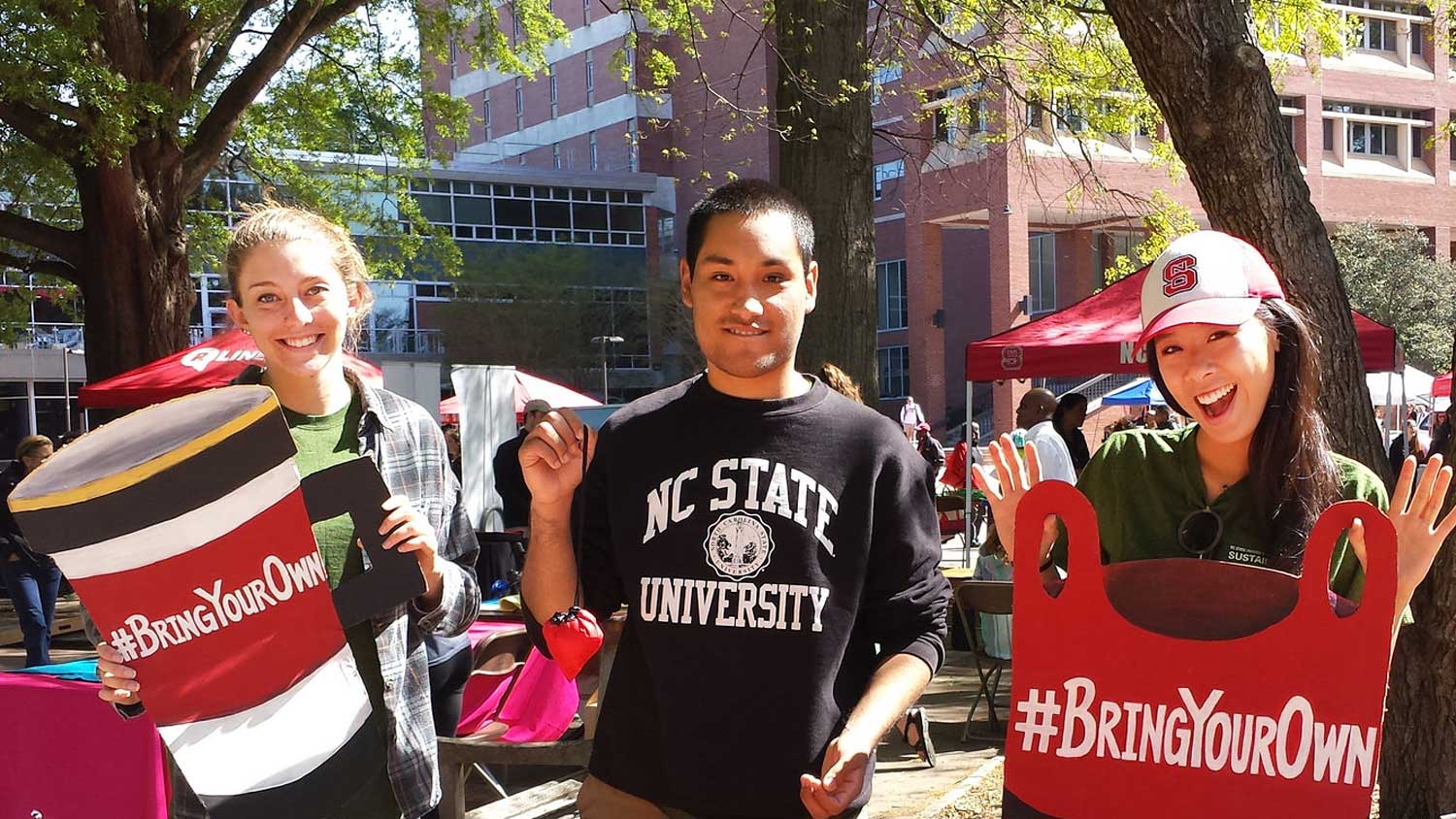Go Plastic Free: Why and How

Did you know that 50% of the plastic produced today is meant to be used once and discarded?
In fact, most of these single-use plastics, like plastic straws and utensils, cannot be recycled.
While recycling is a useful strategy for many plastics, such as plastic water bottles, nationwide the EPA estimates that less than 30% of PET bottles and jars end up being recycled. This means that plastics stay in our environment for hundreds of years, breaking down into microplastics that impact the environment.
Researchers from across the state, including NC Sea Grant and NC State Biological and Agricultural Engineering, are currently wading through plastic samples collected throughout the Neuse River watershed, which flows into North Carolina’s largest estuary, the Pamlico Sound. Their goal is to better understand the impact of inland plastic pollution to aquatic ecosystems.
NC State researchers are also exploring solutions to plastic pollution, such as converting leftover sawdust powder into a new biomaterial to replace expanded polystyrene foam food packaging (styrofoam). Students are also getting involved by designing compostable take-out containers.
While research continues, opportunities abound to reduce plastic pollution by reducing plastic use. Here are 5 ways you can reduce your use of single-use plastics and help reduce plastic pollution:
- Check Your Trash. Reduce your plastic waste by exploring your own trash and recycling bins. What plastic item(s) do you toss out most often? Is there an alternative product or process that could be implemented that would avoid that plastic waste? For example, if your waste bins are full of to-go cups for coffee, could you try to make coffee at home more often? Or, bring a reusable mug to your favorite coffee shop instead of choosing the disposable option?
- Bring Your Own. Refuse single-use packaging by utilizing reusable alternatives. Try bringing your own bottle, bag, mug, utensils and food containers when on the go.
- Make Your Own. From food to cleaning products, many items come packaged in plastic. Look to make your own where possible and/or search for local companies that sell in bulk and utilize reusable containers for shoppers.
- Share Stuff & Ideas. Check with family, friends and community lending groups before buying new. Utilize online groups for tips and ideas.
- Recycle Right. Recycling plays a role in the economic and environmental health of our state and planet. However, not all plastics can be recycled. Know what can and cannot be recycled to ensure that plastic waste is managed appropriately.
Learn more waste reduction strategies and what NC State is doing to reduce its plastic waste at sustainability.ncsu.edu/zero-waste.
- Categories: